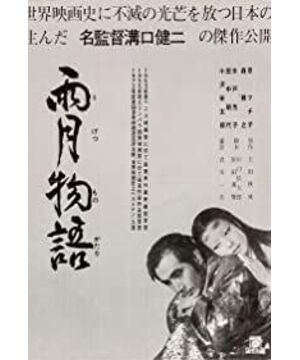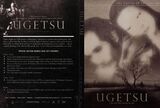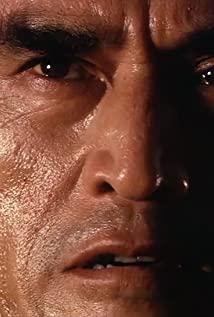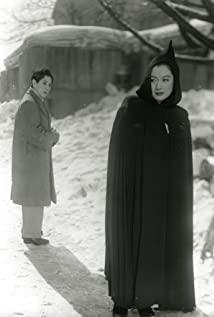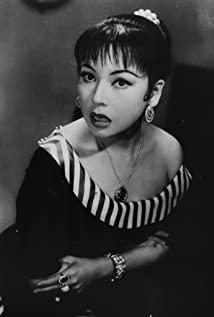Mizoguchi is the best at classical themes. In this film, he combines Japanese serenity and Buddhist Zen, with the advancement of long shots, the coordination of mise-en-scene, the use of traditional music, and the movements of Kabuki and Noh. , constitutes Mizoguchi's aesthetics in Mizoguchi's film... It is generally believed that this film is similar to "Strange Tales from a Liaozhai", in my opinion, he is closer to "Three Words and Two Pai" because of its bizarre elements Not the biggest, bizarre also takes the second place. Its biggest meaning lies in the moral, and the educational significance makes him more inclined to "One Thousand and One Nights"... Mizoguchi is very good at shooting from a female perspective. In his films, Men are ugly and humble, and women often represent the truth, the good and the beautiful. However, it is open to question whether it is feminist. As a male director, it is clear that while he recognizes women, he also maintains the existing social system. For example, this film, It is their wives who paid the price for the ugliness of the two male protagonists. One of them lost their integrity and the other died, while the two male protagonists were unscathed. The ending of the virgin woman did go back with her husband to live a stable life, and the husband abandoned the imagination of becoming famous. This is too beautiful in a certain sense. Perhaps, the design of this plot is also a kind of Mizoguchi's catering to the public's taste. Humanistic care, he is sympathetic to this woman's life... But for the greedy male protagonist, the film is not very critical. It seems that his so-called dedication to the family is to satisfy his own selfish desires. The desire in the movie is obviously better than that of the second male. Of course, he thinks about his wife and always buys expensive clothes for his wife after making money, but this is hardly a family responsibility or love for his wife, otherwise he will not meet. Since the beginning of the female ghost, he has become obsessed with ghosts and forgets everything. The reason why he attracts the female ghost is also his desire that the movie emphasizes. In his opinion, the value of a wife is to take care of children, which he emphasizes in any situation, Buying clothes for my wife is nothing more than to satisfy my desire for control, not to care for my wife. Since the first time my wife emphasized that these are not important, it was a sign... The fun of the narrative is that the audience is aware of the danger, but it is difficult to guess. The ending, although this ending is obvious, the director's narrative still deliberately creates suspense. For example, at the end, he uses the scene header to let the hero go home empty. One follows the family ring to pan, and the heroine appears immediately. The use of space is very interesting, and although the audience realizes the illusion, they also begin to question their grasp of the narrative. It can be said that the director's skill is to make this boring story come alive... Mizoguchi's background determines him film style, his contempt for male ugliness, respect for the beauty of women, he sympathizes with and recognizes the beauty of women, but maintains the dignity of men with reservations... In terms of scenery, he chooses the long-term perspective and panoramic view, which keeps the audience a little calm. Thinking while watching the story, this shooting method is suitable for ancient costumes. At the same time, he uses deep depth of field, which is a kind of praise for thinking. He personally does not make too many value judgments, but let the audience choose the picture. The focus of the film is to deepen the depth of thinking... In the actor's performance, he adopted a similar pattern to Kabuki and Noh, with a few simple lines, showing the sense of sadness and silence, this philosophical shooting, and Ozu Each is a system, they reflect both sides of Japan's past and present, compared to Akira Kurosawa who is walking between Japanese and Western cultures...
View more about
Ugetsu reviews


